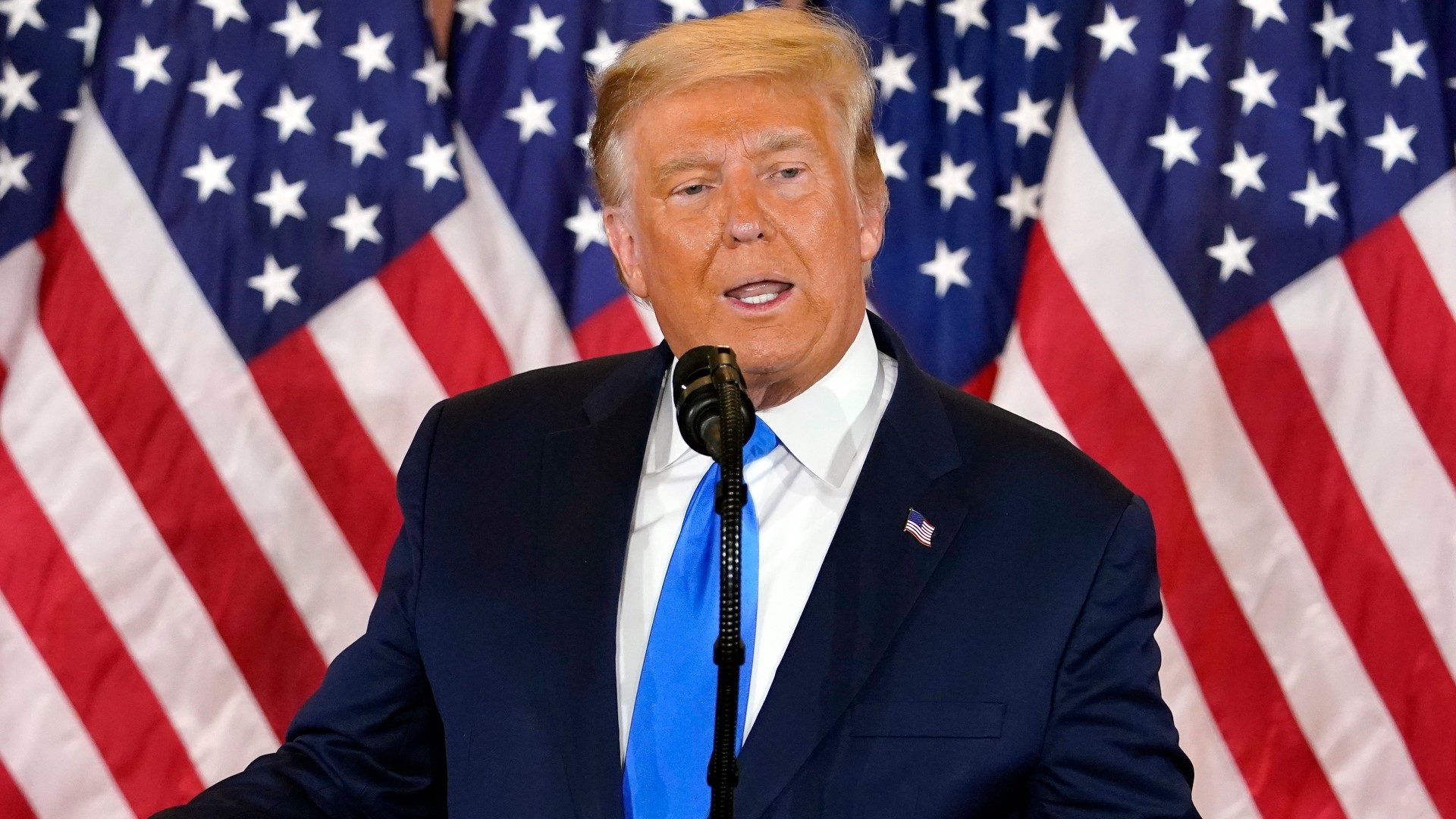HOUSTON — President Donald Trump expressed his displeasure with the ballot counting process in several states via Twitter on Wednesday. He also claimed ballots had been "secretly dumped." Twitter flagged the tweet as possibly misleading.
Trump made several attempts Wednesday to stop, alter, or redo the counting of ballots, including filing lawsuits in Georgia, Pennsylvania and Michigan. He also asked for a recount in Wisconsin.
Bill Stepien, Trump's campaign manager, said in a statement:
"President Trump’s campaign has not been provided with meaningful access to numerous counting locations to observe the opening of ballots and the counting process, as guaranteed by Michigan law. We have filed suit today in the Michigan Court of Claims to halt counting until meaningful access has been granted. We also demand to review those ballots which were opened and counted while we did not have meaningful access. President Trump is committed to ensuring that all legal votes are counted in Michigan and everywhere else.”
University of Houston Professor Brandon Rottinghaus explained what legal options the President has to challenge the results of the election.
Can the President stop ballots from being counted?
"The President has no power to be able to tell states to stop counting," Rottinghaus said. "The states are all independent sovereign entities and the President has no power to be able to tell states to stop voting or to stop counting votes.”
Can the President take a case directly to the Supreme Court?
Trump also said in a news conference early Wednesday morning that “we will be going to the U.S. Supreme Court” to halt the counting of votes in those states in which no final projection had been made.
"No, the president does not have the capacity to be able to initiate a lawsuit directly to the Supreme Court," Rottinghaus said. "There is a well-established pattern that has to be followed, that’s got to be able to be heard at the local level and then it works its way up to the Supreme Court. Presidents have no capability to be able to directly have a case heard in front of the supreme court.”
Can the President challenge the results in certain states and ask for a recount?
Yes, but it depends on the state and the differential in votes. In Wisconsin, where Trump's campaign manager said they intended to request a recount, a losing candidate's votes must be within 1 percent of the winning candidate's votes.
For example, as of 9 p.m. on Nov. 4, Joe Biden received 1,630,542 votes. Trump received 1,610,007. That's a difference of 20,535 votes, which is 1.26%, making a recount in Wisconsin eligible.
Different states have different rules.
What can a candidate do if they are unsatisfied with the results of an election?
"The President really does not have a lot of recourse right now," Rottinghaus said. "We are still in a counting phase, so for most competitive states, they are still waiting for ballots to come in and they’re going to have to count those ballots. So right now it’s a waiting game for most Presidents.”

